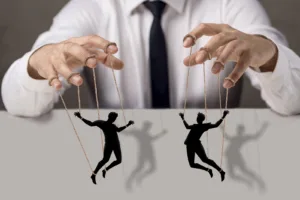
Table of Contents
15 Types Of People To Avoid – Stoics
Stoicism teaches us many good things which are important to lead a successful life avoiding unwanted trouble and put the best concentration on individual goals. Usually, I write articles based on my own learning and purifying it which is practical and appropriate for the readers of this blog (sales and soft skills). However, here I am just bringing some knowledge for you, not my own thoughts but what stoics teach us. Also, it is not copy paste of text but can be said a collection of stoic thoughts I am presenting in a simple format. We spend the majority of our time in our office, dealing with different types of people as such this article is highly applicable for all of us. Learn here to identify the 15 types of toxic people to avoid who can cause serious damage in your life.
You may be a student, a fresher in sales or in any other job, working as a mid-level manager or a leader. Learning is important at all levels. As you shall go up climbing the corporate ladder the most critical skill you should have is how to manage people and how to deal with others. It is equally important inside and outside the office, in family and friends and society. As such I feel this is a vital topic appropriate for this blog which is made to guide the young sales representatives primarily.
One needs to identify people, who is who. Who needs to be encouraged, to accept and who is to avoid? Here you might notice that it says avoid and not delete them from your life. Neither you can delete them nor can go completely out of their influence. So the trick is to know them and live outside their toxic nature which can cause serious damage in your life, and accept other things which are unavoidable as they may be your boss, your subordinates, your peers or friends.
Once you read something, you can add your own imagination and register it in your mind for a longer time whereas audiovisual has a temporary effect as readymade. People do not apply their mind and imagination when scroll through videos. Scrolling in social media is a time pass though many people feel they are learning, in the end hardly they remember anything leave aside from practicing. I prefer to read and suggest you to give reading a preference where it is important for your self-development. This article’s content is more philosophical and very important to find the right course beyond what we see on the surface. Let us start –
1 The Flatter

The flatter is one type of toxic person who tries to please us with insincere praise and compliments. It is not because they truly admire us but because they want something from us. They have an ulterior motive in gaining our favour through excessive flattery. The irony is everyone likes praise in their unconscious mind but needs to be conscious. Some people, especially at the higher level in organisation and society, never realise that the appreciation is fake, and the flatterer lives a good life suppressing their poor quality as a person. At a higher level at the end of the career, the monetary needs are often fulfilled, and want to be marked as great which they are not. So, they unknowingly start supporting the flatters which is ultimately counterproductive for them. Human psychology says it is usual for rich and greedy people to dive for fame. As such, he/she always get surrounded by flatterer and start believing he/she is great. Also, the flatterer does not take time to take a U-turn the moment their purpose is over or defeated. So, do a self-review of who are you in actuality, identify the flatterer and keep a good distance from them.
2 The Greedy

Individuals are consumed by material desires in the pursuit of wealth. Their insatiable avarice clouds their judgement in character. For the greedy accumulating money, possessions and status symbols is the primary driver in life. They constantly crave more, never feeling they have enough even if they are already rich. Their greed knows no bounds. They will scheme exploit and step on others in order to gain more wealth and possessions. The greedy see life as a zero-sum game where more for them means less for everyone else. They are unwilling to share because they want everything for themselves. Their greed also makes them profoundly insecure. No amount of wealth is ever enough to satisfy them. The stoics recognize that greed stems from a mindset of scarcity.
As such, they are unaware of their disease and may harm others taking advantage and not reciprocating the good work of others which benefits them. Often, they would appreciate and pamper a person if they find it is beneficial for them and take no time to alter once the purpose is over.
Wealth accumulation is not bad but very important to live a good life. However, one needs to be careful, they do not destroy their and other’s peace, treating wealth accumulation is the only purpose. As well as remaining honest and ethical is more important as otherwise it is a crime. Be clean and careful.
3 The Envious

The envious are another type of toxic individual the Stoics advise us to avoid and not emulate. These are people who resent the talents successes or possessions of others. They are continually jealous of what others have. The envious feel that another person’s good fortune comes at their expense. They operate from a mindset of scarcity assuming life is a zero-sum game so once someone else gains something they think it means less for them. This breeds resentment, insecurity and animosity within the envious.
An envious person is usually always unhappy and finds the reasons which can keep them unhappy as they live with sadistic pleasure. They can go to any extent to damage the interest of others, spread rumours, and spoil successes even if harm him or her. They often make good friendship with someone to create damage to some other’s life. So, everyone needs to identify them and remain far from them.
Envious is a serious mental state which may or may not damage other’s life but surely the life of a person who possesses it. As such the recovery also should come from within.
4. The Angry

Another problematic personality type the Stoics warn about is the chronically angry person. These individuals are prone to frequent rages, bitterness and desires for revenge. Their temper overpowers their reason and judgment. The angry person is set off easily by minor provocations, real or imagined. They tend to view others’ actions and words in the worst possible light and are quick to take offence. They carry grudges over a long period. Refusing to forgive or let go. The Stoics saw the roots of anger as thwarted desires in a sense of helplessness. The angry person feels they are not getting what they deserve from the world. This bridge resentment and the urge to lash out, gage and retaliation become their way of asserting control. The angry person cannot think clearly your act constructively. Their temper clouds their faculties of reason.
Need some clarification at this point. Anger is a natural behavioural outcome of human beings. People always polite and never get angry are usually not trustworthy. People who sometimes get angry are mostly genuine people. We also need to find why he/she is angry, it is a habit or situation/repeated mistakes/callousness of others that made him angry. However, here stoic advises to avoid chronically angry people.
5 The Complainer

The chronic complainer is another tiresome personality type. Complainers are perpetually negative. Criticising and moaning about their circumstances. They spread gloom rather than light. The complainer finds fault with almost everything, the weather, the government, their job, their relationships. Minor imperfections loom large in massive grievances. The complainer’s attitude is; that nothing is ever good enough. Rather than take constructive action the complainer just wines. They play the victim, acting powerless when they could take steps to improve things. The complainer craves other’s sympathy and tends to broadcast their grievances widely to get attention. This breeds negativity that drags down themselves and those around them. Hardships are unavoidable, but we decide whether we meet them with wisdom and resilience or futile complaints.
6 The Self-Pitying
Self-pitying is another tiresome personality type. These people wallow in their own misery and portray themselves as victims at every turn. A self-pitying person takes no responsibility for their circumstances. They blame other people’s fate, the universe, and anything but themselves for their troubles. Their attitude is poor pitiful me, I deserve better than this unfair world. This breeds a mentality of powerlessness and resentment. This self-pitying individual expects others to cuddle them and make things right.
If anyone tries to coach them highlighting what they are supposed to do, and how they are supposed to act, the self-pitying person quickly marks the advisor as an enemy and multiplies his/her grief as the world is not merciful of his/her troubles. Spending a good amount of time with a self-pitying person can make others self-pitying as it is infectious.
7 The Arrogant
Arrogant is another toxic personality type. Their excessive pride blinds them to their flaws and actual standing. The arrogant person presumes they are always right, the best of what they do and deserving of special treatment. They are (mostly wrongly) convinced of their superior talents, intelligence, status and entitlements. This leads them to talk down to others and view advice or criticism as beneath them. An arrogant attitude breeds intolerance, disrespect, and hostility towards those deemed lower. The arrogant individual is unable to recognise their mistakes or limitations because that would shatter their grandiose self-image. Their pride leaves no room for humility. This makes the arrogant unteachable. They reject useful feedback that would help them improve for show consideration. They also have trouble forming genuine connections since relating as an equal does not satisfy their need for dominance in recognition. The Stoics warn against the folly of arrogance. They advise cultivating humility and recognising our human fallibility. Pride should come from living virtuously not inflating our own importance.
8 The Selfish
Another problematic personality type discussed in stoic teaching is the selfish individual. These people prioritise their own interests above all else and lack consideration for how they are actions impact others. The selfish person tends to view everything in terms of what’s in it for me. Their excessive self-interest blinds them to their social obligations. This creates a reputation for untrustworthiness and disloyalty. The selfish individual may achieve short-term gains but lose relationship respect over the long run. Their cynicism and exploitation breed conflict and isolation. They failed to experience the fulfilment of mutual care and support. Selfishness is ultimately a hollow path. We are social creatures who mentally live in harmony, not conflict. Seeking to elevate others brings more meaning than elevating only oneself. As Marcus stated, what brings up a person’s tranquillity is to do what’s right and to be focused on the well-being of his fellow man. Do not bind yourself with a selfish man.
9 The Stubborn

Another problematic personality type discussed in stoic philosophy is this stubborn individual. These people live here rigidly to their opinions and refuse to listen to reason and compromise. Their flexibility makes them difficult to deal with. Stubborn person insists on having things in their own way no matter what they are unable or unwilling to consider alternative perspectives, advice or possibilities. Even clear evidence contradicting them will not sway their entrenched position. This breeds resistance to change and growth. The stubborn individual would rather persist in a full lie than adjust course and admit being mistaken.
We harm ourselves when we refuse to adapt to changing circumstances or listen to wisdom from others. Our goals should be true than improvement, not clinging obstinately to fragile ego
10 The Insensitive
These people lack empathy and care little about how their words and actions impact others. The insensitive person does not speak up on social cues or understand other’s perspectives. They are tone deaf to work and might hurt, offend or upset someone. They plough recklessly ahead with their agenda without regard for the effects.
The insensitive person’s relationships stay shallow because no one feels safe being vulnerable around them Stoicism advocates developing greater empathy, compassion and care in our conduct. While we cannot control how others receive us we should aim to interact with kindness and consideration. Insensitive people are usually foolish and are apparently happy but deliver disrespect and pain to the lives of sensitive people.
It is very important to be sensitive about other’s challenges, misfortunes, pains, and dissatisfactions and try to help them, at least they should not be hurt by us.
11 The Cynical
Another toxic personality type discussed in stoic philosophy is the cynic. Cynical people dismiss sincerity, idealism and goodness as gullible or foolish. Their reflections of scepticism poisons hope and erodes the community. The cynic assumes the worst of people’s motives and anything positive. They are scornful of virtues like honesty, compassion and altruism. Believing no one genuinely upholds such principles.
Stoicism teaches that while evil exists we must retain faith in our collective potential for virtue and goodness. Cynicism is corrosive, it saps our power to improve society. Though disappointed, we must remain open to sincerity and work together to increase justice and compassion in the world. As Markus stated, when you wake up in the morning tell yourself, the people I deal with today will be meddling, ungrateful, arrogant, dishonest, jealous but I shall handle them approipriately.
12 The Manipulative

Manipulators exploit and deceive others for personal gain. Their duplicity makes them untrustworthy. The manipulative person treats interactions like chess games to strategise advantage for themselves. They plot how to play people against each other, twist situations to their benefit, gain influence through false alliances and coerce outcomes in their favour. This truthless calculus makes the manipulator cunning but untrustworthy. They cultivate a facade of goodwill and sincerity but it masks their self-serving agenda.
The manipulator forms bonds superficially, dropping people once they lose usefulness. Their motives always override connection, exploitive approach to relationships, inevitably backfires. The manipulator may achieve some short-term victories through cunning schemes but their deceitfulness and betrayal of confidence catch up with them. People come to see through the manipulators to face charades and refuse to be used any longer. The Stoics recognise that deceit and exploitation ultimately fail and isolate the perpetrator.
Treating others with sincerity and respect, seeing them as fellow humans deserving of dignity not pawns is the only ethical and prudent way. Manipulation can never breed true cooperation.
13 The Reckless
Another problematic personality type discussed in stoic teachings is the reckless individual. Rackless people take unnecessary risks and fail to consider the consequences of their actions. Their carelessness endangers themselves and others. The reckless person loves courting danger and pushing limits with little forethought. They get a thrill from taking foolish gambles, ignoring warning signs, and engaging in hazardous behaviour without precautions. They seem to believe the rules don’t fully apply to them. This recklessness breeds disaster down the line. The reckless person leaves a wake of crises that could have easily been avoided with prudence and self-control. The reckless individual fails to learn. They rationalise away mistakes, avoid accountability and continue blindly indulging their whims. Stoicism stresses living rationally, not recklessly, while courage has its place. True bravery tempers boldness with reason to produce virtue not hazard. Recklessness benefits no one in the end. We have duties to ourselves and others to show discipline, self-control, face consequences and learn from mistakes. Nothing is more dishonourable than rashness.
14 The Unprincipled
Another problematic personality type discussed in the Stoic philosophy is the unprincipled individual. These people lack integrity and moral standards. They will go out to unethical lengths to get what they want. The unprincipled person does not feel bound by concepts of right and wrong. They are willing to lie, cheat, steal, betray and break promises and harm others in pursuit of their ambitions. The unprincipled person follows no inner sense of ethics or conscience. They have no trouble deceiving those who trust them. We must be willing to lose everything external before sacrificing inner principles.
15 The Vicious
The final toxic personality type stoicism warns is the vicious individual. These malicious people take pleasure in cruelty, domination and causing harm to others. Their callousness makes them profoundly dangerous. The vicious person sees compassion as a weakness and derives satisfaction from inflicting pain. They are bullish to terrorize the vulnerable to assert power or they subtly torment their targets mentally and emotionally. Their aggression covers deep sadism and insecurity.
You may find such vicious people everywhere. Among your customers, competitors and even in same organisation, family and society. This is mindset and you can not change them overnight. However, you can identify them and deal with them keeping a reasonable buffer to prevent them or absorb their vicious acts.
—–.—-
Now come to the vital point. After reading the entire article do you feel you can recognise the toxic people and can avoid them as much as possible? If so, you did learn half or just a part of it? When I was going through it I realised that I too have many of these bad qualities partly. In another sense, no one is completely wise and everyone possesses some bad qualities but the magnitude matters. So, you need to do self-analysis and keep the bad qualities under control at a minimal level and many of these can be completely abolished like ‘greed’ (I love sweets or a good dress is not greed. Greed is something people try to achieve compromising everything or even if it harms other). As well as, a person should be sincere in eliminating their toxic habits so that other people who deal with them do not get harmed. One can take the help of some trustworthy person in the family to identify the toxicity level in his or her behaviour and mindset (but be careful a trustworthy friend can be a victim of some of the above bad qualities and make fun/harm later stage).
This is the reason, even though the article’s name is to avoid toxic people but in every topic, you may find some discussion on what would be the right habit to guide the reader to use it for their self-improvement. I hope you enjoyed reading it, as well as I suggest to read it several times to remember, apply and be a part of the good practices.
—.—
